
What Are Antidepressants
Antidepressants were first developed in 1950 and have since then been used to relieve the symptoms of clinical depression. There are five main types of antidepressants: • Selective serotonin reuptake inhibitors (SSRIs) • Serotonin and norepinephrine reuptake inhibitors (SNRIs) • Tricyclics • Monoamine oxidase inhibitors (MAOIs) • Noradrenaline and Specific Serotoninergic Antidepressants (NASSAs) These different types work in slightly different ways and have different side-effects. However, all these medications ease the symptoms of depression by increasing the levels of one or more neurotransmitters (brain chemicals). Mostly, these drugs work by increasing the levels of the brain chemicals serotonin, dopamine and norepinephrine. Besides clinical depression, antidepressants are also used to treat post-traumatic stress disorder, generalized anxiety disorder, and obsessive-compulsive disorder.
- Important notification about information and brand names used in this slideshow!
- Photo courtesy of Toni Fish by Flickr : www.flickr.com/photos/the_smileyfish/4097699900/
- www.webmd.com/depression/antidepressants-9/slideshow-antidepressants
- www.rcpsych.ac.uk/expertadvice/treatmentswellbeing/antidepressants.aspx

Antidepressant Myths
If you are on antidepressants, you need to get a few things straightened out. • Antidepressants are not addictive. However, discontinuing these on your own without consulting your doctor is not a good idea since your body will react if you suddenly stop your medications. • Antidepressants are not like your usual recreational drugs such as speed or ecstasy. While recreational drugs lift the mood of anyone, antidepressants will only improve the mood of a person with a mood disorder. • Antidepressants will not change your personality. They just bring about a positive change in your mood. • You don't have to take antidepressants for the rest of your life. For most people, treatment may just last for a year or two. • If one type of antidepressant does not work for you, another type may just be the right choice for you. Also keep in mind that just because one type works for your friend, doesn't mean it will work for you too.
- Important notification about information and brand names used in this slideshow!
- Photo courtesy of Emuishere Peliculas by Flickr : www.flickr.com/photos/bizzzarro/441904256/
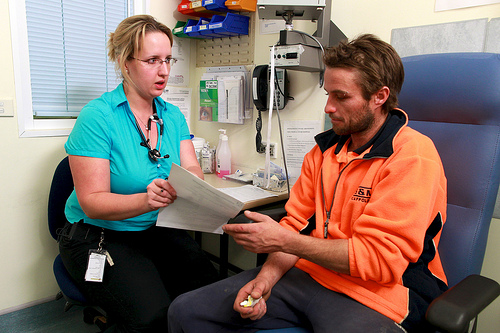
Your Expectations
If your doctor has prescribed antidepressants, you should discuss your expectations with him or her. Here are a few things you may want to consider here. As mentioned earlier, these medications work by increasing the levels of brain chemicals. This increase in the levels of neurotransmitters is a slow and gradual process. So, if you are expecting immediate relief in your symptoms, you will be disappointed. Most people notice a difference only after taking the medications for two to four weeks. Another thing that you should keep in mind is that just because you have started to feel better does not mean that you can stop your medication. Your doctor will advise you to continue with the course of the medication even if you are feeling better. This will prevent relapse and will also prevent your body from reacting to the sudden loss of neurotransmitters.
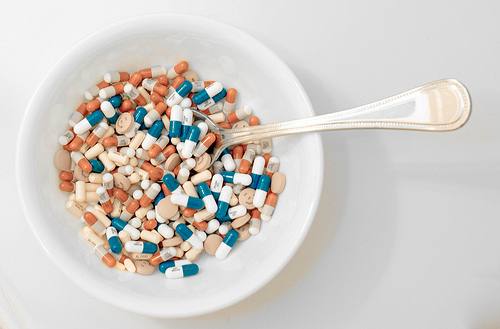
Using Brand Name Vs Generic Antidepressants
Should you be using generics or brand name antidepressants? That's a question that many people are asking these days. Generics are quite safe and effective to use and many psychiatrists have no objections in prescribing these rather than the more expensive brand name drugs. Some people who switch from brand name to generics report a return of all the symptoms related to depression. However, that doesn't mean that generics are inferior in quality. Generics are as effective as brand name drugs and it makes sense to use them since they are cheaper. However, if you want to switch from brand name to generics and are concerned about the impact it may have on your symptoms, make sure to discuss it with your doctor first.
- Important notification about information and brand names used in this slideshow!
- Photo courtesy of Carsten Schertzer by Flickr : www.flickr.com/photos/jonathanschertzer/6922458949/
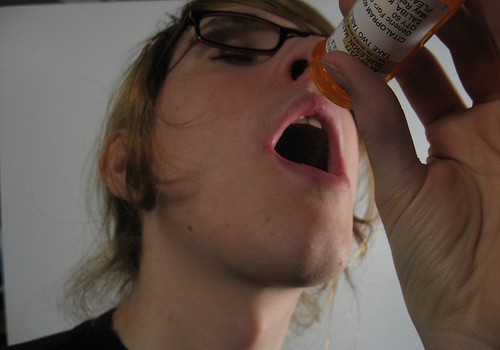
Side Effects Of Antidepressants
Make sure to ask your doctor about the side-effects you may experience as a result of these medications. Some common side-effects of antidepressants are feeling sick, dry mouth, nausea, sleep difficulties, weight gain, excessive sweating, erectile dysfunction in men, and constipation or diarrhea. As the body gets used to the medication, these side-effects should subside. If you find that the side-effects persist or get worse, consult your doctor. MAOIs may cause a serious rise in blood pressure which can lead to symptoms such as a stiff neck, chest pain, abnormally fast heartbeat and severe headache. In case you experience such symptoms, contact your doctor immediately.
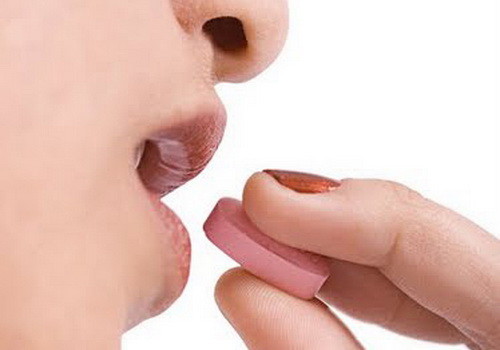
Treatment Duration
Your doctor is the best judge about how long you should continue with the medication. A course of treatment usually lasts for around six months. Depending on your past history and the improvement in your symptoms, your doctor may extend the treatment duration to around two years. As mentioned earlier, you should not discontinue the medication on your own just because you feel better. Your doctor will advise you to complete the course of treatment. If the doctor feels that you have shown sufficient recovery, he or she will slowly wean you off the antidepressants to ensure that there are no withdrawal symptoms and no relapses.
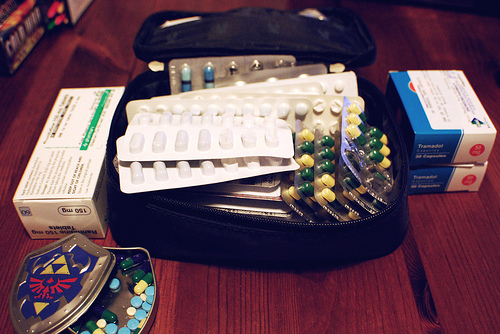
Drug Interactions
When antidepressants are taken with another drug at the same time, one of the medicines may alter the effect of the other and may even lead to serious consequences to your health. SSRIs have been found to interact with other drugs. For example, taking SSRIs with antiplatelets such as clopidogrel may increase the risk of bleeding. MAOI antidepressants when combined with SSRIs may lead to serotonin syndrome, a rare but potentially serious set of side-effects that occurs when the serotonin levels in the brain become too high. SSRIs may worsen diabetes so your doctor may have to adjust the dose of your regular diabetes medicines. The best way to avoid any serious drug interactions is to inform your doctor about the medications that you are taking or are planning to take in the future.

When You Need To Switch AD
The first few weeks on antidepressants are usually tough for most people. The medications cause unpleasant side-effects in the beginning which may be distressing for some people. Keep in mind that these side-effects usually go away as your body and brain adjusts to these medications. It may also take around 6-8 weeks for you to feel relief in your symptoms. So, have patience and if you have any concerns or excessively distressing side-effects, talk to your doctor. In case of severe side-effects or if you feel no relief in your symptoms even after a month, your doctor may want you to switch to another type of antidepressant. Follow your doctor's advice to the letter and you will surely be able to find the antidepressant that works best for you.
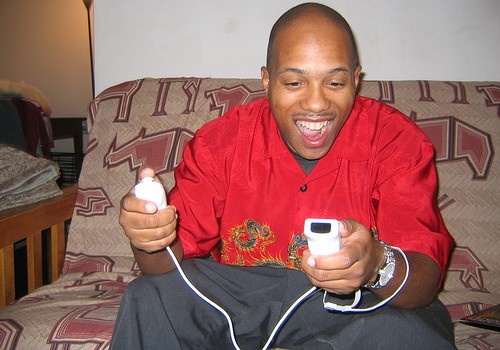
Coming Off AD
If you stop taking your antidepressants without the doctor's advice, you may end up going through antidepressant withdrawal symptoms. Within three days of stopping the medication, you may experience symptoms such as anxiety, irritability, dizziness, mood swings, nausea, muscle spasms, trouble sleeping, and tremors among many others. Let your doctor decide when your treatment should be discontinued. The doctor will slowly cut back the dose of your medication in a process called tapering. Cutting back the dose slowly allows the brain to adjust to the chemical changes and prevents the occurrence of withdrawal symptoms. Your doctor may prescribe medications to help ease the symptoms that may occur as a result of stopping your antidepressants. It may take a few weeks for the withdrawal symptoms to completely disappear.
- Important notification about information and brand names used in this slideshow!
- Photo courtesy of Gregg O'Connell by Flickr : www.flickr.com/photos/greggoconnell/302729245/

Psychotherapy
People with moderate to severe depression derive the best benefits from antidepressants. Psychotherapy is advisable for people with mild depression and also for those with moderate depression. If you have severe depression, the best course of action is to start with antidepressants and begin psychotherapy as soon as you start feeling better. Keep in mind that the effects of psychological treatments such as cognitive behavioral therapy last longer than antidepressants. These therapies also reduce the risk of a relapse and you also don't have to go through any side-effects. So, make sure to combine antidepressants with psychotherapy to ensure lasting benefits for your mood as well as your life in general.
- Important notification about information and brand names used in this slideshow!
- Photo courtesy of New Media Ba by Picasa : lh3.googleusercontent.com/-QDNMSLPRvv0/TYc7X9fEsNI/AAAAAAAAHxA/8MOPYQJOKNo/s1024/koristi%2520od%2520terapije.jpg
- www.nps.org.au/conditions-and-topics/conditions/mental-health-conditions/mood-disorders/depression/for-individuals/medicines-for-depression-antidepressants



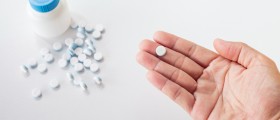


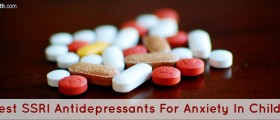




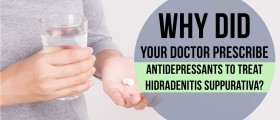




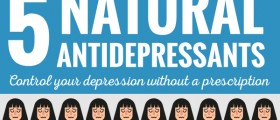



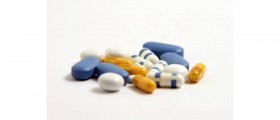





Your thoughts on this
Loading...